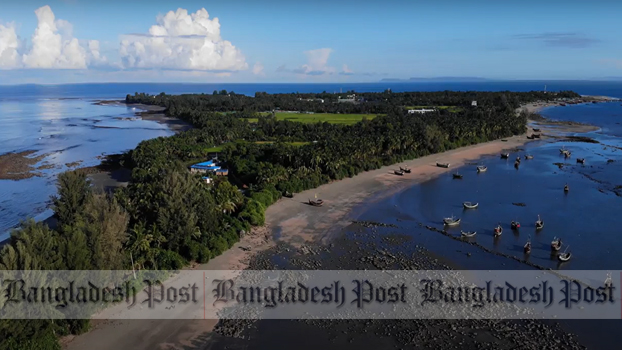Blue Economy In Bangladesh: A Pathway to Sustainable Development

In recent years, the concept of the blue economy has garnered global attention, promising an innovative approach to sustainable development through the careful use of marine resources. For Bangladesh, a country with a substantial coastal ecosystem, the blue economy represents an untapped reservoir of opportunity, both economically and environmentally. This post aims to shed light on how Bangladesh can harness the power of its blue economy, spotlighting sustainable practices, government policies, and the overall potential that lies beneath its waves.
Introduction to the Blue Economy Concept
At its core, the blue economy encompasses economic activities that directly or indirectly take place in the ocean, seas, and coasts while maintaining the balance of the marine environment and natural resources. It's a broad concept that includes traditional sectors such as fisheries, maritime transport, and tourism, as well as emerging areas like offshore renewable energy. In the context of Bangladesh, with its extensive coastal line spanning about 710 km along the Bay of Bengal, the stakes and possibilities are enormous.
Current State of Blue Economy in Bangladesh
Bangladesh's marine resources include a wide variety of fisheries, vast gas reserves, and significant opportunities in shipping and coastal tourism. However, the exploitation of these resources has been limited and not without its challenges. Issues including overfishing, environmental degradation, and the lack of comprehensive regulatory frameworks hinder progress. Despite these challenges, there have been concerted efforts by the government and private sector to tap into this economic frontier, aiming for a harmonious balance between growth and sustainability.
Sustainable Practices and Innovations
The path to a sustainable blue economy in Bangladesh is paved with innovative practices and technological advancements. Eco-friendly fishing, sustainable aquaculture practices, and the conservation of critical habitats like mangroves have seen increasing emphasis. Furthermore, initiatives like the incorporation of green shipping technologies signify a commitment to environmentally considerate growth. These practices not only align with global sustainability goals but also ensure the long-term viability of marine resources.
Economic and Environmental Benefits
Harnessing the blue economy presents a dual opportunity for Bangladesh: stimulating economic growth while preserving the environment. The potential to create new employment opportunities, particularly in underdeveloped coastal areas, stands out as a significant benefit. Additionally, a robust blue economy can contribute substantially to food security, energy production, and disaster resilience, all while supporting biodiversity conservation and reducing pollution.
Government Policies and Future Outlook
The Government of Bangladesh recognizes the strategic importance of the blue economy and has taken steps to integrate it into national development plans. Policies focused on sustainable exploitation, protection of marine biodiversity, and investment in marine research are crucial. The collaboration with international partners and adherence to global standards will further enrich these policies. Looking ahead, leveraging technological innovations and fostering a culture of sustainability will be key to overcoming challenges and realizing the potential of the blue economy.
Call to Action
For Bangladesh’s blue economy to flourish, a collective effort from government bodies, private sector stakeholders, and the individual citizen is necessary. Supporting eco-friendly products, advocating for policies that protect marine ecosystems, and contributing to scientific research are ways everyone can play a part. The time to act is now if we are to achieve a balance between development and sustainability.
Conclusion
The blue economy offers Bangladesh a unique opportunity to redefine its developmental trajectory. By championing sustainable practices, innovating in key sectors, and implementing forward-thinking policies, Bangladesh can unlock the full potential of its marine resources. The blue economy in Bangladesh is not just an economic opportunity; it's a testament to the country's commitment to sustainable development and environmental stewardship. With a unified approach, the future of Bangladesh’s blue economy looks promising, heralding a new era of prosperity that does not come at the expense of the planet.




